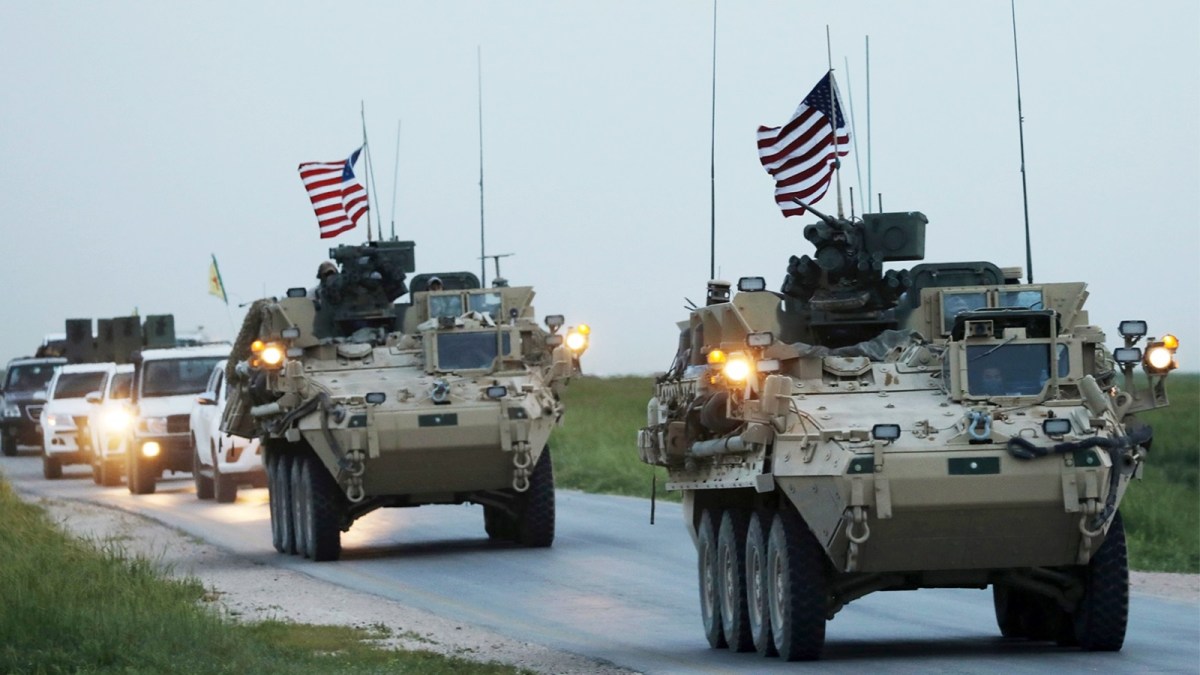The National Interest magazine published an article in which the author argued that the Iranian strike on a US military base in northern Syria, killing an American contractor and wounding 6 soldiers, has renewed the question of the objectives of the US presence in Syria.
The author of the article, Dr. Ali Demerdas, professor of international relations at the University of Charleston and a researcher at the Fulbright Program, highlighted that the officially declared goals, according to US officials, ranged from "confronting the Islamic State" to "containing and defeating Iranian influence in the country and protecting Israel."
Demerdas said those goals may seem legitimate, but the way the United States is working to achieve them is problematic in itself and will lead to more problems, not only for Washington but for the entire region.
Thin gruel
Demerdas saw Washington's insistence on keeping its 900 troops in Syria under the pretext of "containing the threat of the Islamic State" as a flimsy argument, as the group poses a direct threat to states and regional actors far greater than the threat it poses to Washington.
During his rule, the Islamic State concentrated its attacks against Shiites in Iraq and Syria, making it a major enemy of President Bashar al-Assad in Syria and an enemy of Iran and its Shiite proxies in the region.
Pro-Iranian militias such as the Popular Mobilization Forces in Iraq and Hezbollah in Lebanon and Syria played a major role in defeating the group.
Therefore, Washington's insistence on remaining in Syria under the pretext of "containing ISIS" is a flimsy argument, as this is a task carried out by many parties in the region who consider the group an existential threat and whose interests require its elimination.
Mistakes and confused interference
Demerdas says that America made a series of mistakes in Syria in 2014 and 2015 that undermined its relationship with a precious ally, Turkey, and also led to its unjustified presence in Syria, at the height of the Islamic State's activity in Syria, the administration of former President Barack Obama failed to adopt a clear plan to eliminate the organization and topple Assad.
Confused U.S. agencies began to support opposition groups with different agendas: The CIA trained pro-Turkish Sunni opposition forces represented by the Free Syrian Army, whose main goal was to topple Assad and fight the Islamic State.
The Pentagon also supported the Kurdish People's Protection Units (YPG), the Syrian branch of Turkey's archenemy Kurdistan Workers' Party (PKK), whose primary goal was to fight the Islamic State, then gain autonomy and establish an independent state inside Syria.
Dog's breakfast
By 2015, Washington's plan in Syria was in disarray, with the Free Syrian Army and the YPG turning against each other even though they continued to fight the Islamic State separately while fighting each other.
That same year, Washington decided to abandon the Sunni Free Syrian Army and focused on supporting the YPG, as well as the idea of toppling Iran's ally Assad, a decision that coincided with the Obama administration's rapprochement with Tehran.
According to Demerdas' article, this chaos paved the way for Russia's entry into the Syrian conflict, as Russian President Vladimir Putin, who saw the weakness of US plans and the ambiguity of their goals, decided to intervene to protect his country's interests and save the Assad regime.
Russia's intervention has led to genocidal campaigns of revenge against Syria's anti-Assad opposition and the deaths of tens of thousands of civilians, some of whom died in the infamous chemical attack in 2017.
What's new now?
Washington is eager to keep limited forces in Syria to protect the YPG and counter Iran, which in his view would backfire.
The last thing America wants — as the war in Ukraine intensifies and talk of a possible war with China grows — is to get bogged down in the Middle East quagmire through an endless war with Iran.
He says the United States should review its Middle East strategy and get out of Syria as it did in Iraq when the Senate rescinded the war mandate there.
Demerdas concluded that instead of provoking Turkey, its key local power NATO ally — through the unconditional support it provides to Ankara's arch-enemy the PKK and the YPG — Washington should take advantage of Turkey's military and political influence in the Middle East, the Caucasus and the Black Sea.

